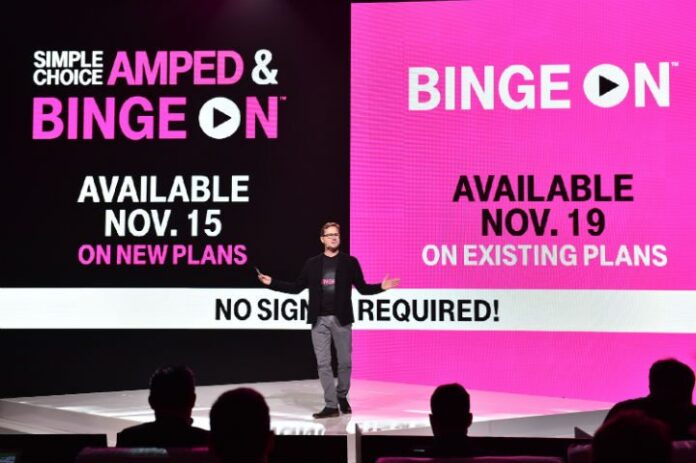T-Mobile US had a rough week. The Electronic Frontier Foundation said the way the carrier’s optimizes streaming video for its new Binge On service is really just throttling the speed at which video is delivered to user devices. So how did T-Mobile US react? While this charge was embarrassing for the wireless carrier, their CEO John Legere stepped up and answered the charges.
Companies often have embarrassing and challenging moments like this. The way a company reacts and handles issues like this matters for their growth going forward. While this was a punch in the gut to T-Mobile US, I have to hand it to John Legere for his handling of the situation.
The take away was while the EFF findings about video speed were basically correct, the labeling was incorrect and gave the wrong impression. Legere said T-Mobile US is not doing anything wrong and, in fact, is doing things right. Bottom line: aren’t optimizing and throttling the same thing just with a positive or negative spin?
Does not impact small screen smartphones
It’s Legere’s job to put the best spin on every situation. He says small screens on small devices like smartphones don’t require the same amount of data a larger screen device does. Once you get past a certain point, the viewer can’t tell the difference on a smaller screen.
T-Mobile US says this is a smarter way to handle the growing wireless data customer demand. That may be true, however, the real problem T-Mobile US faces is a limited supply of wireless data spectrum. If they had enough spectrum, they would not have to look towards this form of a solution.
Will EFF story impact T-Mobile US growth?
Whether this EFF story will have long-term legs and impact T-Mobile US going forward is unknown. However, Legere did stand up and answer the charges. The funny thing is, right now it appears that the EFF story may be 100% right, and the T-Mobile explanation may also be 100% right.
Reduced quality may or may not be detected by the human eye on small smartphone screens, but what about larger smartphone screens or tablet screens? As you can see, there are still questions. We’ll just have to watch and see how this plays itself out over the coming days and weeks.
Legere and Donald Trump
However, this story can grow in importance over time. Many times public relations can drive a story one way or another because it can impact customer attitudes. With that said, I see both Legere and Donald Trump looking very similar in this regard. Both have strong opinions and neither backs down.
Limited wireless data spectrum is real T-Mobile US weak link
T-Mobile US does have a weakness: very little wireless spectrum. AT&T Mobility, Verizon Wireless and Sprint all seem to have enough. T-Mobile US however is in a pinch.
That means they will have to come up with solutions like Binge On to conserve and stretch their current supply so they can continue to serve their customers growing wireless data needs. That’s why this solution is so important in that it helps them solve a problem. It’s like having a picket fence in your back yard. T-Mobile US is widening the space between pickets. The fence is still there, however neighbors can peak through.
This is not a problem, just a difference. The real problem is this should not be hidden. If they had plenty of wireless data spectrum, this move would not have been necessary. However, since the amount of spectrum T-Mobile US has access to is very limited, they must come up with creative solutions. That is what this issue is all about.
So based on what I hear so far, this solution will help T-Mobile US continue to deliver wireless data services to their customers. And that’s the whole point. The problem was in the language they used, or failed to use to describe the solution.
Language is important
If there is no real difference on the small smartphones screens, it might not impact sales or market share. If there is a difference on larger screens like laptops or tablets, this may be a problem. We’ll just have to see what happens next.
Either way T-Mobile US is not doing anything wrong. They are just trying to manage their resources to the best of their ability. I think they should be given credit for that. I just wish they would have been more clear with language and open about the reason, so the marketplace could make up it’s own mind.
I think the real truth here is if a customer chooses T-Mobile US, they may get a lower price. However, that may mean the price is paid in other ways like limiting video quality. This is a valid choice for a customer to have. This is nothing T-Mobile US should hide. In fact, they should focus on this difference in their marketing. Let the customer choose. That’s how many companies are built.

